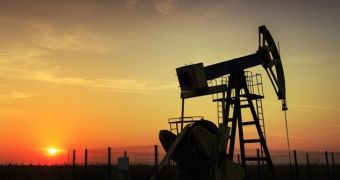A team of researchers with the University of East Anglia in the United Kingdom say that a bacterial strain dubbed Methylocella silvestris has high chances to really come in handy in terms of reducing environmental pollution.
This is because, according to evidence at hand, this bacterial strain is able to metabolize various compounds of natural gas. Consequently, it might be possible to use it to mop up leaks, be they naturally occurring or man-made.
By growing on greenhouse gases resulting either from naturally occurring gas leaks or from fracking activities and oil spills, Methylocella silvestris would help limit climate change and global warming, the University of East Anglia scientists say.
In a recent paper in the journal Nature, the researchers detail that this bacterial strain is commonly found in peat, tundra, and forest soils in Northern Europe. However, its presence was also documented in the microbial community that formed in the aftermath of the Deepwater Horizon disaster in 2010.
Investigations have shown that Methylocella silvestris can metabolize methane and propane, both of which are listed among the compounds of natural gas, at a similar rate, the University of East Anglia specialists say.
This means that it could serve to limit the environmental impact of natural gas leaks and also to reduce greenhouse gas emissions resulting from fracking and accidental oil spills, the scientists further argue in their paper in the journal Nature.
“We have shown that one microbe can grow on both methane and propane at a similar rate. This is because it contains two fascinating enzyme systems which it uses to harness both gases at once,” lead researcher Prof. Colin Murrell said in a statement.
Furthermore, “This is very important for environments exposed to natural gas, either naturally or through human activity. These microbes may play an important role in mitigating the effects of methane and other gases before they have a chance to escape into the atmosphere.”
The researchers imagine that Methylocella silvestris could be made to grow in soils in regions where natural gas leaks and fracking activities are fairly common. In such areas, the bacterial strain would metabolize whatever methane and propane comes its way and, in doing so, would help reduce environmental pollution.
“These findings could be used to inform land use management decisions. For example areas where high levels of methane and propane are released could benefit from an environment rich in these microbes, which live naturally in soil,” explained Prof. Colin Murrell.

 14 DAY TRIAL //
14 DAY TRIAL //